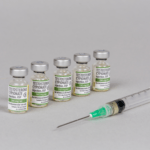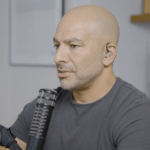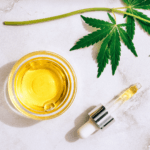
Is testosterone replacement therapy both safe and effective in men with higher cardiovascular risk factors?
An assessment of the results from the long-awaited TRAVERSE trial

Could a psoriasis drug find new purpose in treating alcohol use disorder?
Recent pilot research suggests that the psoriasis drug apremilast may have promise in curbing excessive drinking in those with alcohol use disorder.

#275 – AMA #52: Hormone replacement therapy: practical applications and the role of compounding pharmacies
“The sum total of lives that have been saved due to less breast cancer as a result from the lack of HRT for the past 20 years is exactly zero.” —Peter Attia

Could an antihypertensive drug have independent benefits for longevity?
A recent animal study indicates that the antihypertensive drug rilmenidine has impressive effects on lifespan, but without further evidence, this story seems like another “fountain of youth” myth.

#274 – Performance-enhancing drugs and hormones: risks, rewards, and broader implications for the public | Derek: More Plates, More Dates
“There’s no drug that’s purely selective exactly where you want and it’s perfect.” —Derek – More Plates More Dates

Therapeutic potential and cardiovascular risks of medical cannabis
A recent study highlights concerns regarding the potential cardiovascular risks associated with using medical cannabis. A cause for alarm?

Concerning findings on melatonin content in over-the-counter supplements
A recent study reports that some sleep supplements may contain far more melatonin than the label indicates – providing another reason to be conservative in their use.

#272 ‒ Rapamycin: potential longevity benefits, surge in popularity, unanswered questions, and more | David Sabatini, M.D., Ph.D. and Matt Kaeberlein, Ph.D.
“[Rapamycin] is the most robust and reproducible drug that we know about today for impacting not only longevity, but to the extent that we can measure various metrics of healthspan in complex animals, rapamycin also seems to positively impact pretty much every aspect of health span that we measure.” —Matt Kaeberlein



